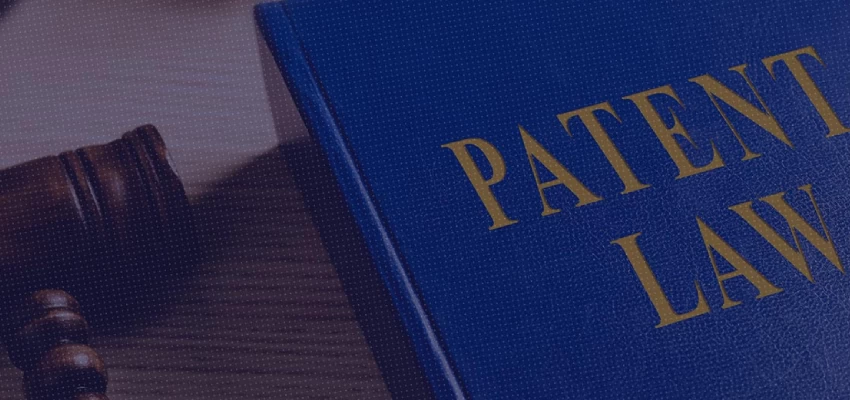Introduction
The issue in this article discusses on the prescribed timelines set under the Patents Act, 1970 (‘Act’) and the Patent Rules, 2003 (‘Rules’) and throws insights on the flexibility of timelines set forth under different orders. The Act and the Rules provides various time-limit at all stages of the Patent prosecution from the filing of the Patent Application till the completion of the tenure of the Patents such as filing the Application through National phase entry, submission of the various forms, working of patents and even under post-grant procedures. The prescribed time-limits should be followed strictly and any failure to meet the timelines would be pernicious to any person of interest.
However, when there is some difficulty to meet these statutory timelines, there are certain provisions under which these timelines could be extended. Such power to grant extensions is entrusted with the Controller of Patents. However, some prescribed timelines are non-extendable and the delays are not curable even by the Controller of Patents.
This article comprehends the scenarios where the extension of breached timelines has been allowed and also the cases wherein the flexibility of the timelines were found not to be permissible.
Perspective
Different High Courts have given different views on whether the prescribed time limits as stated in the Act and the Rules can be extended or not.
In Nippon Steel Corporation v. Union of India [2011 SCC OnLine Del 669] decided on 8 February 2011, the Delhi High Court decided a writ petition concerning the interpretation of Section 11-B(1) & (4) of the Act and Rule 24(B) of the Rules. The Petitioner’s PCT (Patent Cooperation Treaty) application claiming priority from 9 February 2006, entered national phase within the prescribed timeline as per the Rules. However, as per Rule 24-B of the Rules, a Request for Examination (RFE) has to be made within 48 months from the date of priority or the date of filing of the application whichever is earlier i.e., by Feb 9, 2010. Due to a docketing error at the Petitioner’s attorney’s office, the deadline for filing RFE in India was missed and to rectify this error, the Petitioner’s agent filed an application under Section 57(5) of the Act seeking to amend the priority date, disregarding the Japanese priority date 9 February 2006, and to change it to the international filing date of the PCT application i.e., 9 February 2007. This amendment would have extended the deadline for filing the RFE by four years (48 months) i.e., till 9 February 2011. However, the Assistant Controller of Patents and Design (‘CoP’) declined the application stating that such a request is time barred as the said application is deemed to have been withdrawn under Section 11B(4) of the Act due to non-filing of RFE within the prescribed period which was due on 9 February 2010. Consequently, a writ petition was filed before the Delhi High Court in this matter.
The Petitioners contended that there was no limitation to file a request for amendment under Section 57(5) of the Act and once it was allowed, it would relate back to the date of application for grant of patent. Such an application for amendment could therefore be filed even in respect of an application for grant of a patent that was ‘deemed to be withdrawn’ in terms of Section 11-B(4) of the Act. The Petitioners contended that the provisions regarding the filing of RFE were only directory and not mandatory, and therefore, referring to Rule 137 and Rule 138 of the Rules, the Controller of Patents could have taken a liberal view and condoned the delay in the interest of justice.
The Respondents contended that once the deadline for filing RFE was missed by the Petitioners, there was no patent application existing in the eyes of law and a non-existing patent application could not be amended. They contended that the Court could not rewrite the time-limits set out in the Act or the Rules.
Since no RFE was filed before the expiry of the deadline in terms of Section 11-B(4) of the Act, the patent application stood withdrawn after 9 February 2010. The provisions of the Act and the Rules have to expressly reflect the legislative intent to permit relaxation of time limits, absent which such relaxation cannot be ‘read into’ the provisions by a High Court exercising powers under Article 226 of the Constitution. The provisions regarding the prescribed time periods in this case are mandatory and not merely directory. Merely because there is no time limit prescribed for filing an application for amendment of the priority date, it does not mean that such application can be filed even after a patent application ceases to exist in law. Once an application is deemed to have been withdrawn by an Applicant in terms of Section 11-B (4) of the Act, the CoP cannot entertain an application for amending any portion of such application. Therefore, the Single Judge of the Delhi High Court affirmed the decision of the CoP and declined the Petitioner’s request for amendment of priority date and to restore their patent application.
Further, the Division Bench of the Delhi High Court in Carlos Alberto Perez Lafuente v. Union of India & Ors. [2019 SCC OnLine Del 7404] held observed that (i) there is a definite period of limitation provided for under the Patents Act, 1970 for filing of the Request for Examination; (ii) the Controller has no statutory authority to condone the delay if the 48 months’ time period is not adhered to; (iii) there is a specific mandate in law (Rule 138 of the Patent Rules, 2003) that delay cannot be condoned. For the said reasons, the Court held that the writ petition was devoid of merits and did not warrant the Court to exercise its writ jurisdiction. Accordingly, the writ petition was dismissed. However, with respect to the submissions made in the said matter, that the term ‘earlier’ used in Rule 24B(1)(i) must be construed to be read as ‘later’, considering that Rule 24B(ii) – (iv) of the Patent Rules, use the phrase ‘whichever is later’ in respect of computation of time period for filing of a request and that normally the ‘Date of priority of an application’ would be earlier than the ‘Date of filing of the application’; was favorably considered by the Court. Even though the Court discussed the interpretation of Rule 24B(1)(i) in great detail, to hold that the literal interpretation of the said rule does not provide for any such ambiguity, the Court nevertheless directed that a copy of the judgment be sent to the Ministry of Law & Justice, Government of India to examine whether there is an unintended/ inadvertent error in the use of the words ‘whichever is earlier’ instead of ‘whichever is later’ in Rule 24B(1)(i) and accordingly take remedial steps, if needed.
In contrast, in the case of Iritech v. Controller of Patents [2017 SCC OnLine Del 7983] decided on 20 April 2017, when the request for examination and a request via letter addressed to Controller of Patents was brought forth for the correction of a clerical error made within the 48 months prescribed period, the order deeming the application withdrawn was quashed by the Court. In this case, after the RFE was filed timely, the Applicant realized that there was an error in the application number and therefore the Applicant requested for its correction. However, this was not entertained by the Controller and the application was deemed to be withdrawn. Since, the Petitioner complied with the prescribed requirements as stated in the Rules and the Act, i.e., the request for examination was filed within the 48 month period and even the request for correction of the clerical error was made prior to the expiry of the period of 48 months and prior to the application for grant of patent being deemed to have been withdrawn. Thus, the order of the Controller was set aside, the error in the application number was to be corrected, the application was restored and was to be treated as pending.
In the case of European Union represented by European Commission v. Union of India & Ors. [2022 SCC OnLine Del 1793], two patent applications of the Petitioner were deemed to be abandoned under Section 21(1) of the Act. The said applications claimed priority from 15 June 2010, and 24 September 2010, respectively. The said applications entered the national phase on 21 December 2012, and 18 April 2013, respectively. The RFE was filed timely and thereafter First Examination Reports (FER) were issued by the Patents Office on 10 April 2018, and 29 June 2018, respectively. The European Law Firm, GEVERS had engaged a patent agent in India for moving the application to national phase. However, even after several emails were sent by M/s. GEVRES to the Indian patent agent about the status of the application, they did not get any response from the said patent agent. The files of these applications were therefore moved by the Petitioner to another Indian firm (second patent agent) which then informed the Petitioner that the patent applications were deemed to be abandoned due to the non-filing of the FER within the stipulated time. The second patent agent then followed up on the FERs for the respective applications on 29 April 2019 and sent various emails to the patent office seeking a hearing however, no reply was received. Therefore, aggrieved by this, the Applicant filed a writ petition before the Delhi High Court seeking to set aside the order of abandonment. The Petitioners contended that the delay in filing the FERs was completely non-attributable to the Applicant. Despite continuous follow-ups, the first patent agent had not responded. Under these circumstances, the delay in filing the responses deserves to be condoned as the Petitioner’s valuable rights in the patents will be completely lost due to the negligence of the first patent agent which was not the fault of the Petitioner. Further, the Petitioner has also filed the same patent applications in several jurisdictions and has been granted in many of these jurisdictions which shows that the Applicant could not have intended to abandon its application. They further contended that though the Controller may not have the power under Rule 138 (as they are expressly excluded) of the Act to condone delay in filing response to FER, however, while exercising writ jurisdiction under Article 226 and 227 the Court can, in exceptional circumstances, permit the Applicant to rectify the defect and restore the application. The Respondents contended that the prescribed time period as per the Rules has lapsed and the same cannot be extended thereafter. The timelines provided are mandatory in nature and not merely directive.
The Court held that in cases where filing a response to FER is concerned the High Court may exercise its writ jurisdiction and grant extension in filing of the response to the FER on the ground that the Applicant did not have the intention to abandon its application. The Courts may in exceptional cases extend the deadline for the application to be put in order for grant after examining the factual matrix of each case and determining whether the Applicant in fact intended to abandon the patent or not. Factors like negligence by the patent agent, docketing errors, diligence of the Applicant etc., could be considered by the Courts before deciding the matter. Thus, the Court would have to examine the circumstances in the peculiar facts of each case. The Single Judge of the Delhi High Court relied on the decision of the same Court in Ferid Allani v. Union of India & Ors. decided on 25 February 2008, where the Court held that ‘abandonment requires a conscious act on the part of Applicant which would manifest his expressed intention to abandon the application.’ The Court further held in this case that abandonment can never be presumed. In the present factual matrix, the Petitioners were diligent enough that they sent follow-up emails to the first patent agent and when the said patent agent failed to respond, they engaged the second patent agent. As the FER is usually intimated by the patent office to the patent agent on record, the Applicant was not aware of it. Furthermore, all the communication emails sent by the Applicant was within the stipulated six months plus three months period and if any of these emails were responded to, the FER would have been filed timely and would not have been time barred.
The Court also referred to the 161st report of the Department Related Parliamentary Standing Committee on Commerce on 23 July 2021, titled ‘Review of the Intellectual Property Rights Regime in India’ wherein the Committee took note of the enormous prejudice caused to the Applicants due to deemed abandonment provisions. The committee opined as follows:
‘The Committee opines that the abandoning of patents, without allowing hearing or petition, may demoralize and discourage patentees in the country to file patents. It recommends the Department that certain flexibility should be incorporated in the Act to make for allowance of minor errors and lapses to prevent outright rejection of patents being filed. Hence, a revised petition with penalty or fee may be permitted under the Act for minor or bona fide mistakes that had been committed in the filed patents.’
Therefore, owing to the factual matrix in this case, the Court held that since the consequences of abandonment of an application are quite severe, the Applicant did not have an intention to abandon the application, the Applicant was conscious of the fact that the applications may be maturing examination, took initiative to keep in touch with the patent agent at all stages and as there is no fault attributable to the Applicant, the Court took a liberal approach to condone the delay and directed that the response to the FER shall be taken on record by the patent office and the applications shall be restored to their original position.
Therefore, it can be traced from the trend of decisions given by various High Courts that when it comes to condonation of delay in cases of filing reply to FERs within stipulated time and owing to the facts in each case, the Courts have adopted a liberal approach. In a similar case of PNB Vesper Life Sciences Pvt. Ltd. v. Controller General of Patents, Designs & Trademarks (W.P. 22253 of 2021), a decision of the Madras High Court passed on 14 March 2022, the Petitioner failed to respond to the FER within the stipulated time owing to a clerical error by the patent agent. The Petitioner had been granted patents in various other jurisdictions. The Court gave the benefit of doubt to the Petitioner and held that it cannot see any reason as to why the Petitioner wouldn’t pursue the objections of the patent office and they should not suffer owing to the error attributable to the patent agent. Therefore, the Court restored the application to its original position and the Petitioner could duly respond to the objections stated in the FER within the time as fixed by the Court.
In a recent decision dated 4 Nov 2022, in Chandra sekar v. Controller of Patents & Designs/ Deputy of Controller of Patents and Designs [2022 SCC OnLine Mad 5172], the delay in filing RFE for the Applications 8846/CHENP/2011 and 8907/CHENP/2011 was found to be a negligent error by the Indian Agent and not the unwillingness of the Applicant i.e., the Petitioner. The Petitioner of these Applications is from US and the US Attorney of the Petitioner handled these cases through an Indian Patent agent. The US Attorney contacted the Indian Agent regarding filing of RFE and the Indian Agent provided wrong due dates for filing RFE as 29 November 2015 and 30 November 2015 instead of the correct dates being 29 April 2013 and 5 May 2013 due to docketing error. The Indian agent then filed Form 18 and a Petition for Condonation of delay on 22 May 2013 with a prayer to condone the delay in filing Form 18. The Petitioner then filed a supplementary petition seeking condonation of delay disclosing true and correct reasons for non-filing of Form-18 within the prescribed period on 4 October 2013. The Petitions were dismissed for failing to adhere to the prescribed time-limits and the Petitioner further filed writ petitions challenging the impugned orders. The Courts considering the facts the delay was due the negligent error by the Agent and that the Applicant was keen in continuing the Application, the valuable statutory rights of the Petitioner cannot be completely deprived of, allowed the writ petitions, and restored the Applications to their original position, allowing the Applications for Examination. It is pertinent to note that this decision did not refer to the earlier decision passed by the Delhi High Court concerning condonation of RFEs.
Conclusion
Overall, it is the responsibility of the Patent agents and the Applicants to strictly adhere to all the deadlines and to have a clear understanding on the deadlines which can be extended and deadlines which cannot be extended in the prosecution of the Patent Applications. The prescribed time-limits are meant to protect the rights of the concerned parties and to seek remedy promptly. Also, it is to be observed that if such time-limits were to be prescribed for the exercise of any right, or any obligation, it would lead to a great amount of uncertainty and could be detriment to the rights of the interested parties.
Though under suitable circumstances the Courts are liberal in extending the timelines, the Courts also insisted that these provisions regarding the timelines relating to various stages of a patent application are mandatory and not merely directory and therefore can only be extended in special circumstances where sufficient reasons are afforded.
[The authors are Director, Associate and Intern, respectively, in IPR practice at Lakshmikumaran & Sridharan, Chennai]











